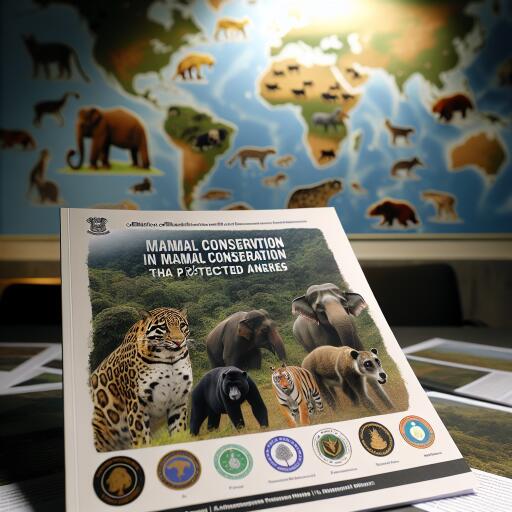
The Habitats Trust, Vivek PARC Foundation, and Tripura Forest Department Release Ground-breaking Report on Mammal Conservation in Tripura’s Protected Areas – Smart Business News
On October 4, 2024, a collaborative initiative between The Habitats Trust, the Vivek PARC Foundation, and the Tripura Forest Department unveiled a transformative report titled “Status of Mammals in the Protected Areas of Tripura: A Rapid Assessment.” This document delivers an in-depth exploration of mammalian biodiversity within Tripura’s safeguarded territories, emphasizing the vital role of data-driven conservation methods in safeguarding the ecological treasures of the state.
The study, conducted between January and April 2024, covered Tripura’s significant conservation sites: Sepahijala Wildlife Sanctuary & Clouded Leopard National Park, Rowa Wildlife Sanctuary, Trishna Wildlife Sanctuary, Bison National Park, and Gumti Wildlife Sanctuary. The comprehensive survey captures the essence of mammalian diversity, recording ordinary and rare species while spotlighting environmental threats to their habitats.
Researchers, including Omkar Patil and Dr. Ashutosh Joshi from Vivek PARC Foundation, led the study with the support of The Habitats Trust’s technological team for conservation, which played a pivotal role by assisting in survey design, data analysis, and providing financial assistance for the initiative.
The findings from the study highlight crucial discoveries that affirm Tripura’s standing as a vital segment of the Indo-Burma biodiversity hotspot. Through methods like camera trapping and line transects, the team managed to document elusive species such as the leopard cat, fishing cat, and crab-eating mongoose. Notably, they captured the first-ever camera-trap images of the Ferret Badger in Gumti Wildlife Sanctuary. Evidence was also discovered of large predators, like a potential Clouded Leopard scat in Clouded Leopard National Park, suggesting hope for the ongoing presence of these top carnivores.
The Relative Abundance Index (RAI) obtained from camera traps provided vital insights into species distribution, with common palm civets and crab-eating mongooses registering the highest RAI values. These results underscore the significant role of Tripura’s protected areas in maintaining rich mammalian diversity and highlight the crucial need to conserve entire ecosystems supporting a vast array of wildlife and plant species.
Aligning with The Habitats Trust’s commitment to empowering local conservation efforts, this project also prioritized capacity building. Vivek PARC Foundation executed training workshops for Tripura Forest Department personnel, imparting key skills in camera trapping and wildlife monitoring techniques. This practical training equipped the Forest Department for future conservation ventures, covering both theoretical knowledge and hands-on field applications.
Rushikesh Chavan, leading The Habitats Trust, stressed the importance of collaborative conservation efforts, stating, “Tripura’s forests are part of a global biodiversity hotspot, home to many rare and endangered species. These joint studies with Tripura Forest Department are a key initial step toward safeguarding Tripura’s biodiversity and ecosystems.”
Vikram Sankaranarayanan, Executive Director of the Vivek PARC Foundation, noted, “This valuable partnership with the Tripura Forest Department and The Habitats Trust will open avenues for diversified interventions, strategically supporting conservation and management of wildlife in Tripura for many years and decades ahead.”
This comprehensive report also acts as a critical resource for policymakers, providing fact-based insights into the wildlife status in Tripura and pinpointing essential areas for future research and action. The findings suggest a need for extensive, ongoing studies into mammalian community ecology to guide conservation strategies that will ensure the protection of Tripura’s wildlife for future generations.
The launch of this report signifies a landmark in The Habitats Trust’s enduring dedication to preserving India’s lesser-known species and vulnerable ecosystems. Tripura’s distinctive biodiversity faces mounting pressure from habitat degradation, human-animal conflicts, and climate change. By focusing efforts on under-researched regions like Tripura, The Habitats Trust aims to spearhead conservation initiatives that not only protect individual species but also foster resilient ecosystems supporting biodiversity in its entirety.





Leave a Reply